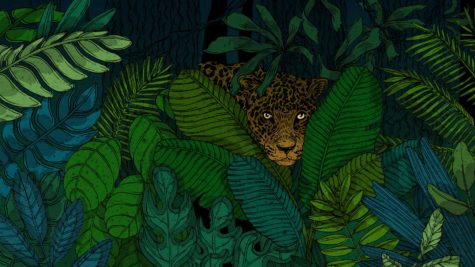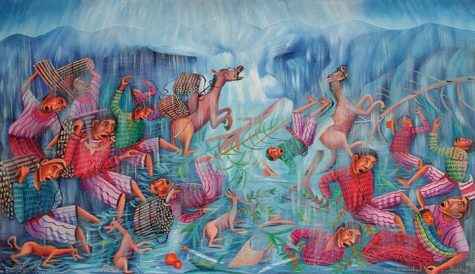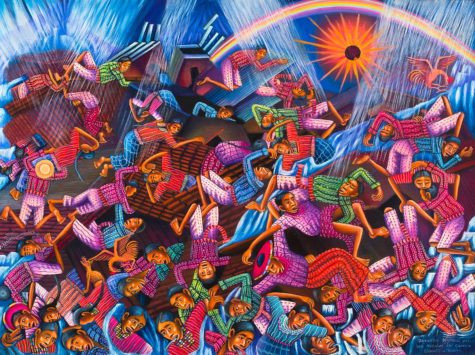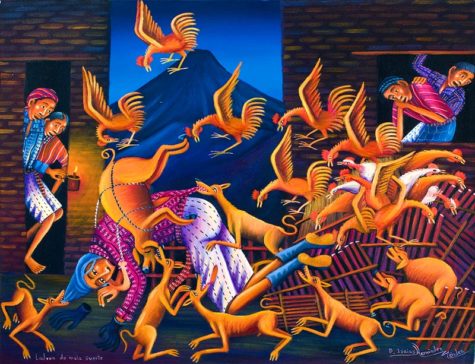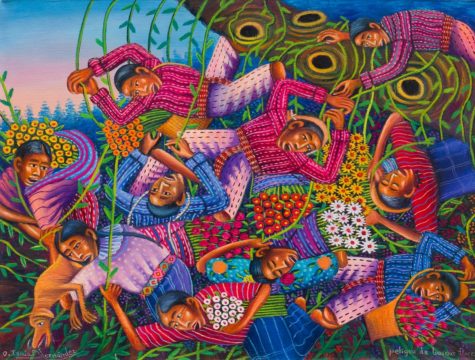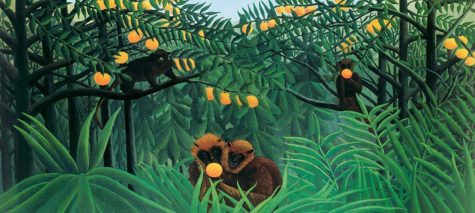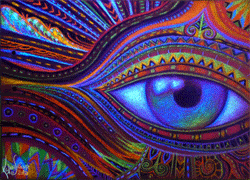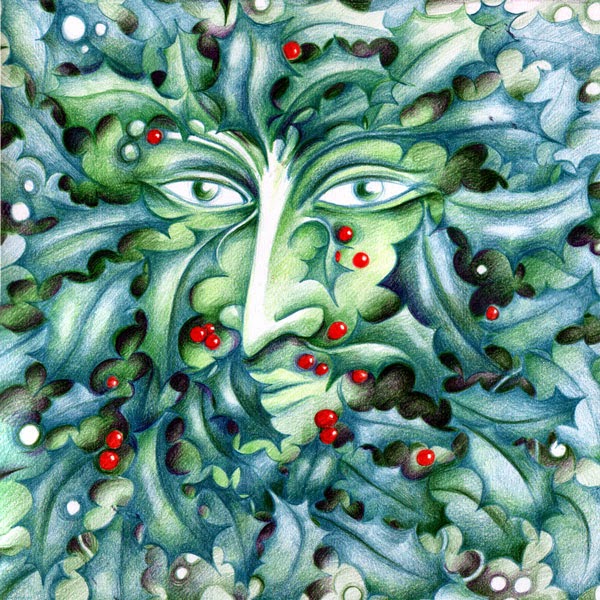Jaguar
Jaguar Vengence
From the book Werwolves, by Elliott O’Donnell, first published in 1912, we have this account:
A Dutch trader, of the name of Van Hielen, was visiting for purely business purposes an Indian settlement in a very remote part of the colony. Roaming about the village one evening, he came to a hut standing alone on the outskirts of one of those dense forests that are so characteristic of Arawak.
Van Hielen paused, and was marvelling how anyone could choose to live in so outlandish and lonely a spot, when a shrill scream, followed by a series of violent guttural ejaculations, came from the interior of the building, and the next moment a little boy – some seven or eight years of age – rushed out of the house, pursued by a prodigiously fat woman, who whacked him soundly across the shoulders with a knotted club and then halted for want of breath.
Van Hielen, who was well versed in the native language, politely asked her what the boy had done to deserve so severe a chastisement.
“Done!” the woman replied, opening her beady little eyes to their full extent; “why, he’s not done anything – that’s why I beat him – he’s incorrigibly idle. He and his sister spend all their time amid the trees yonder conversing with the bad spirits. They learned that trick from Guska, with the evil eye. She has bewitched them. She was shot to death with arrows in the market-place last year, and my only regret is that she wasn’t put out of the way ten years sooner. Ah! there’s that wicked girl Yarakna – she’s been hiding from me all the day. I must punish her, too!”
And before Van Hielen could speak the indignant parent waddled off – with surprising swiftness for one of her vast proportions – and reappeared dragging by the wrist an elfish-looking girl of about ten. She gave the urchin one blow, and was about to give her another, when Van Hielen, whose heart was particularly tender where children were concerned, interfered, and by dint of bribery persuaded her to desist. She retired indoors, and Van Hielen found himself alone with the child.
“May the spirit of the woods for ever be your friend!” the maiden said. “But for you my poor back would have been beaten to a tonka bean. My brother and I have suffered enough at the hands of the old woman – we’ll suffer no more.”
“What will you do then?” Van Hielen asked, shocked at the revengeful expression that marred the otherwise pretty features of the child. “Remember, she is your mother, and has every right to expect you to be obedient and industrious.”
“She is not our mother!” the girl answered. “Our mother is the spirit of the woods. We work for her – not for this old woman, and in return she tells us tales and amuses us.”
“You work for her!” Van Hielen said in amazement. “What do you mean?”
The child smiled – the ignorance of the white man tickled her. “We gather aloes for medicine for her sick children; the core of the lechugilla for their food, yucca leaves for plumes for their heads, and scarlet panicles of the Fouquiera splendens for their clothes. My brother and I will go to her to-night when the old woman is sleeping. Where? Ah! we do not tell anyone that. Do we see her? The spirit of the woods, you mean? Yes, we see her, but it is not every one who can see her–only those who have sight like ours. But I must go now–my brother is calling me.”
Van Hielen could hear nothing; though he did not doubt, from the child’s behaviour, that she had been called. She ran merrily away, and he watched her black head disappear in the thick undergrowth facing him. Van Hielen’s curiosity was roused. What the child had said impressed him deeply; and against his saner judgment he resolved to secrete himself near the hut and watch.
After it had been dusk some time, and all sounds had ceased, he saw the two children emerge from the hut, and, tiptoeing softly towards the trees, fall on their hands and knees and crawl along a tiny, deviating path. Hardly knowing what he was doing, but impelled by a force he could not resist, Van Hielen followed them.
It was a delicious night–at that time of year every night in Arawak is delicious–and Van Hielen, who was very simple in his love of nature, imbibed delight through every pore in his body. As he trod gently along, pushing first this branch and then that out of the way, and stooping down to half his height to creep under a formidable bramble, countless voices from animal land fell on his ears.
From a glimmering patch of water, away on his left, came the trump of a bull-frog and the wail of the whip-poor-will; a monkey chattered, a parrot screeched, whilst a shrill cry of terror, accompanied by a savage growl, plainly told of the surprise and slaughter of some defenseless animal by one of the many big beasts of prey that made every tree their lurking place.
On any other occasion Van Hielen would have thought twice before embarking on such an expedition; but that night he seemed to be labouring under some charm which had lulled to sleep all sense of insecurity. It was true he was armed, but of what avail is a rifle against the unexpected spring of a jaguar or leopard–from a bough some ten or twenty feet directly over one’s head–or the sudden lunge of a boa constrictor!
At first, the path wound its way through a dense chapparal consisting of the various shrubs and plants rarely to be met with in other parts of Arawak, namely, acacias, aloes, lechuguillas, and the Fouquiera splendens. But after a short time this kind of vegetation was succeeded by something far more imposing – by dense masses of trees, many of them at the least one hundred and fifty feet in height: the mora, which from a distance appears like a hillock clothed with the brightest vegetation; the ayucari, or red cedar; and the cuamara, laden with tonka beans. So thick was their foliage overhead that one by one Van Hielen watched the stars disappear; and the path ahead of him darkened till it was as much as he could do to grope along.
Still he was not afraid. The thought of that elfish little maiden with the luminous eyes crawling along in front of him inspired him with extraordinary confidence and he plunged on, anxious only to catch another glimpse of her and see the play out. Once his progress was interrupted by something hot and leathery, that pushed him nearly off his feet and puffed rudely in his face.
It was on the tip of his tongue to give vent to his ruffled feelings in forcible language, but the knowledge that this would assuredly warn the children of his proximity kept him quiet, and he contented himself with striking a vigorous blow. There was a loud snort, a crashing and breaking of brushwood, and the thing, whatever it was, rushed away.
Another time he stumbled over a snake which was gliding from one side of the path to the other. The creature hissed, and Van Hielen, giving himself up for lost, jumped for all he was worth. As luck would have it the snake missed, and Van Hielen, escaping with nothing more serious than a few scratches and a bump or two, was able to continue his course.
After long gropings the path at length came to an end, the trees cleared, and Van Hielen saw before him a pool, radiantly illuminated by the moon, and in the very centre – an immense Victoria Regia water-lily.
Though accustomed to the fine species of this plant in Guiana – which is the home of the Victoria Regia – Van Hielen was doubtful if he had ever before beheld such a magnificent specimen. The silvery moonlight, falling on its white and pink petals, threw into relief all the exquisite delicacy of their composition, and gave to them a glow which could only have been rivalled in Elysium.
Indeed, the whole scene, enhanced by the glamour of the hour and the sweet scent of plants and flowers, was so reminiscent of fairyland that Van Hielen – enraptured beyond description – stood and gazed in open-mouthed ecstasy.
Then his eyes fell on the children and he noiselessly slipped back under cover of a tree.
Hand in hand the boy and girl advanced to the water’s edge, and kneeling, commenced to recite some strange incantation, which Van Hielen tried in vain to interpret. Sometimes their voices reached a high, plaintive key; sometimes they sank to a low murmur, strangely musical, and strangely suggestive of the babbling of brook water over stones and pebbles.
When they had finished their incantation, they got up, and running to some bushes, returned in a few seconds with their arms full of flowers, which they threw with great dexterity on to the leaves of the giant lily. With their faces still turned to the water they remained standing, side by side, whilst a silence–deep and impressive, and shared, so it appeared to Van Hielen, by all nature–fell upon them.
A cold current of air, rising apparently from the pool, blew across the opening, and sweeping past Van Hielen, set all the leaves in motion. It rustled on till its echoes gradually ceased, and all was still again. It now seemed to Van Hielen that the character of everything around underwent a subtle change; and the feeling that every object around him was indulging in a hearty laugh at his expense intensified with every breath he drew.
For the first time Van Hielen was afraid. He could not define the cause of his fear–but that only made his fear the more acute. He was frightened of the wind and darkness, and of something more than the wind and darkness–something concealed in–something cloaked by the wind and darkness. Even the atmosphere had altered–it, too, was making game of him. It distorted his vision. The things he saw around him were no longer stationary–they moved. They twirled and twisted themselves into all sorts of grotesque and fanciful attitudes; grew large, then small; nearer and then more distant.
The plot of ground in front of which the children knelt played all manner of pranks – pranks Van Hielen did not at all like. It moved round and round – faster and faster, until it eventually became a whirlpool; which suddenly reversed and assumed the appearance of a pyramid revolving on its apex. Quicker and quicker it spun round–closer and closer it drew; until, without warning, it suddenly stopped and disappeared; whilst its place was taken by an oddly shaped bulge in the ground, which, swaying backward and forward, increased and increased in stature, till it attained the height of some seven or eight feet.
Van Hielen could not compare this with anything he had ever seen. It was monstrous but shapeless – a mere mass of irregular lumps, a dull leadish white, and vibrating horribly in the moonlight. He thought of the children; but where they had stood he saw only two greenish-yellow spheres that, twirling round and round, suddenly approached him.
As he started back to escape them, all was again changed. The lumpy figure had vanished, the atmosphere cleared, and everything was absolutely normal. There were now, however, solid grounds for fear. Advancing on him with flashing eyes and scintillating teeth were two vividly marked jaguars–a male and female. Van Hielen, usually calm and collected in the face of danger, on this occasion lost his presence of mind: his gun dropped from his hands, his knees quivered, and, helpless and inert, he reeled against the tree under which he had been standing.
The jaguars – which seemed to be unusually savage even for jaguars – prepared to spring, and Van Hielen, certain his hour had come, was about to close his eyes and resign himself to his fate, when the female brute, although the bigger and more formidable, hesitated – thrust its dark, handsomely spotted head almost in its victim’s face, and then, lashing its companion sharply with its tail, swerved aside and was off like a dart.
It took Van Hielen some minutes to realize his escape, and then, more in a dream than awake, he mechanically shouldered his rifle and slowly followed in the beasts’ wake.
An hour’s walking brought him to the end of the forest. The dawn was breaking, and the track leading to the settlement was just beginning to exhibit the mellowing influence of the first rays of the sun. There was an exhilarating freshness in the air that made Van Hielen keenly sensitive to the ambitious demands of a newly awakened stomach.
Opposite him was the hut of the old woman, the entrance somewhat clumsily blocked with a makeshift door. As Van Hielen looked at it curiously, wondering if the woman was in the habit of barricading it in this fashion on account of her proximity to the forest, sounds greeted him from within.
Stepping lightly up to the hut, Van Hielen listened attentively. Some big animal – a hound most probably – was gnawing a bone – crunch, crunch, crunch!
Van Hielen moved away, but hadn’t gone very far before an indefinable something made him turn back. That crunching, was it a dog or was it …?
His heart turned sick within him at the bare thought. Again he listened at the threshold, and again he heard the sounds – gnaw, gnaw, gnaw – crunch, crunch, crunch! He rapped at first gently, and then loudly, ever so loudly.
The gnawing at once stopped, but no one answered him. Then he called – once, twice, thrice: there was no reply. Assured now there was something amiss, he gripped his rifle, and putting his shoulder to the door, burst it open. A flood of daylight rushed in, and he saw before him on the floor the mutilated and half-eaten remains of a woman, and – did his eyes deceive him or did he see? Crouching in a corner all ready to spring, two magnificent jaguars. Van Hielen raised his rifle, but – in less than a second – it fell from his grasp.
Towards him, from the same spot – their small mouths and slender hands smeared with blood – ran Yarakna and her brother.
The Gods Destroy Their Experiment
From the Mayan Book of the Dawn of Life, we have this account of how the Gods destroyed their second failed experiment with creating humans.
Again there comes a humiliation, destruction, and demolition. The manikins, woodcarvings were killed when the Heart of Sky devised a flood for them. A great flood was made; it came down on the heads of the manikins, woodcarvings.
The man’s body was carved from the wood of the coral tree by the Maker, Modeler. And as for the woman, the Maker, Modeler needed the pith of reeds for the woman’s body. They were not competent, nor did they speak before the builder and sculptor who made them and brought them forth, and so they were killed, done in by a flood:
- There came a rain of resin from the sky.
- There came the one named Gouger of Faces: he gouged out their eyeballs.
- There came Sudden Bloodletter: he snapped off their heads.
- There came Crunching Jaguar: he ate their flesh.
- There came Tearing Jaguar: he tore them open.
They were pounded down to the bones and tendons, smashed and pulverized even to the bones. Their faces were smashed because they were incompetent before their mother and their father, the Heart of Sky, named Hurricane. The earth was blackened because of this; the black rainstorm began, rain all day and rain all night.
Into their houses came the animals, small and great. Their faces were crushed by things of wood and stone. Everything spoke: their water jars, their tortilla griddles, their plates, their cooking pots, their dogs, their grinding stones, each and every thing crushed their faces.
Their dogs and turkeys told them: “You caused us pain, you ate us, but now it is you whom we shall eat.” And this is the grinding stone:
“We were undone because of you.
Every day, every day,
in the dark, in the dawn, forever,
r-r-rip, r-r-rip,
r-r-rub, r-r-rub,
right in our faces, because of you.
This was the service we gave you at first, when you were still people, but today you will learn of our power. We shall pound and we shall grind your flesh,” their grinding stones told them.
And this is what their dogs said, when they spoke in their turn: “Why is it you can’t seem to give us our food? We just watch and you just keep us down, and you throw us around. You keep a stick ready when you eat, just so you can hit us. We don’t talk, so we’ve received nothing from you. How could you not have known? You did know that we were wasting away there, behind you.
“So, this very day you will taste the teeth in our mouths. We shall eat you,” their dogs told them, and their faces were crushed. And then their tortilla griddles and cooking pots spoke to them in turn:
“Pain! That’s all you’ve done for us. Our mouths are sooty, our faces are sooty. By setting us on the fire all the time, you burn us. Since we felt no pain, you try it. We shall burn you,” all their cooking pots said, crushing their faces.
The stones, their hearthstones were shooting out, coming right out of the fire, going for their heads, causing them pain. Now they run for it, helter-skelter. They want to climb up on the houses, but they fall as the houses collapse.
They want to climb the trees; they’re thrown off by the trees. They want to get inside caves, but the caves slam shut in their faces.
Such was the scattering of the human work, the human design. The people were ground down, overthrown. The mouths and faces of all of them were destroyed and crushed. And it used to be said that the monkeys in the forests today are a sign of this. They were left as a sign because wood alone was used for their flesh by the builder and sculptor.
So this is why monkeys look like people: they are a sign of a previous human work, human design- mere manikins, mere woodcarvings.
From: Popol Vuh: the Mayan Book of the Dawn of Life
James Cheney: Invocation To The Dark Mother
Daniel: Prayer Before The Final Battle
blessed obyno: Queen of Ghosts
blessed obyno: Queen of Ghosts
Caerlion Arthur: The Great, Bloody and Bruised Veil of the World
